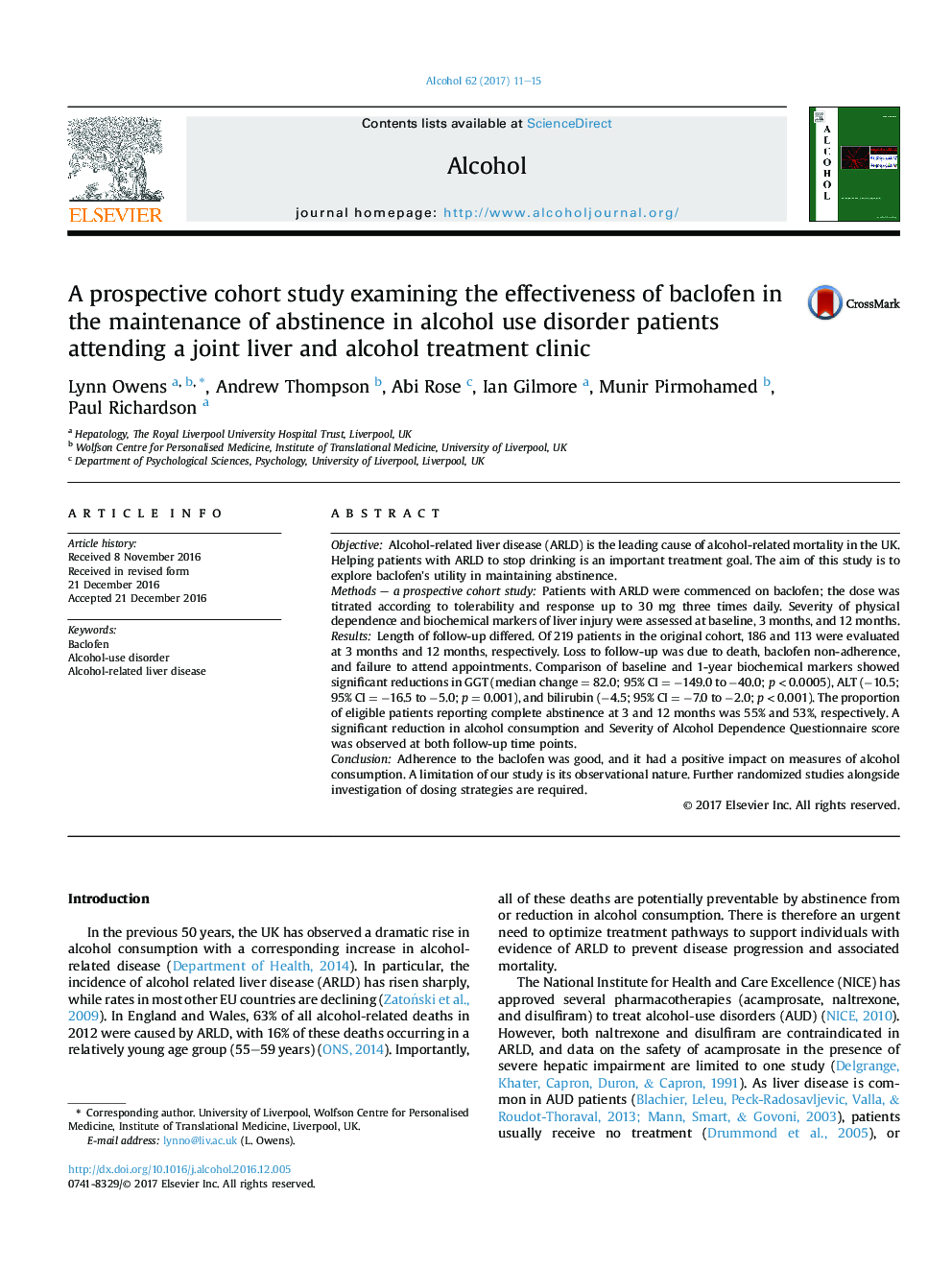| Article ID | Journal | Published Year | Pages | File Type |
|---|---|---|---|---|
| 5119572 | Alcohol | 2017 | 5 Pages |
â¢Liver function tests generally improved over the observational period.â¢Patients reporting complete abstinence at 3 and 12 months were 55% and 53%, respectively.â¢Dosing strategies for baclofen in this population require further investigation.
ObjectiveAlcohol-related liver disease (ARLD) is the leading cause of alcohol-related mortality in the UK. Helping patients with ARLD to stop drinking is an important treatment goal. The aim of this study is to explore baclofen's utility in maintaining abstinence.Methods - a prospective cohort studyPatients with ARLD were commenced on baclofen; the dose was titrated according to tolerability and response up to 30 mg three times daily. Severity of physical dependence and biochemical markers of liver injury were assessed at baseline, 3 months, and 12 months.ResultsLength of follow-up differed. Of 219 patients in the original cohort, 186 and 113 were evaluated at 3 months and 12 months, respectively. Loss to follow-up was due to death, baclofen non-adherence, and failure to attend appointments. Comparison of baseline and 1-year biochemical markers showed significant reductions in GGT (median change = 82.0; 95% CI = â149.0 to â40.0; p < 0.0005), ALT (â10.5; 95% CI = â16.5 to â5.0; p = 0.001), and bilirubin (â4.5; 95% CI = â7.0 to â2.0; p < 0.001). The proportion of eligible patients reporting complete abstinence at 3 and 12 months was 55% and 53%, respectively. A significant reduction in alcohol consumption and Severity of Alcohol Dependence Questionnaire score was observed at both follow-up time points.ConclusionAdherence to the baclofen was good, and it had a positive impact on measures of alcohol consumption. A limitation of our study is its observational nature. Further randomized studies alongside investigation of dosing strategies are required.
